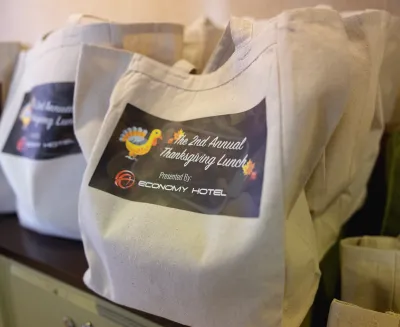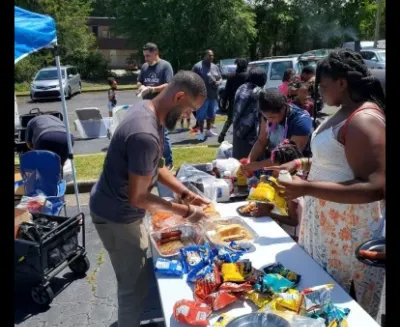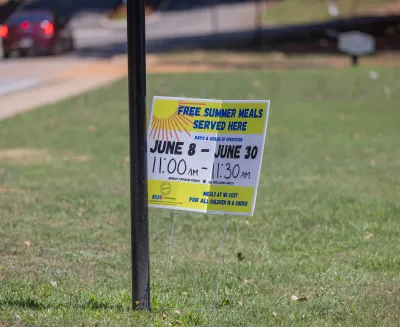Ali Jamal Forbes Councils Member
Forbes Real Estate Council COUNCIL POST
Alongside the rising popularity of Airbnb and Vrbo comes the opportunity for any person to reap the same benefits as a real estate investor who makes a killing while passively collecting rental income. Starting a vacation rental business by renting out other people's homes and apartments and hosting them to short-term guests has become the perfect side hustle for many. I encourage others with the right mindset to jump on that gravy train fast.
Many home owners have tapped into the hospitality market by advertising their space on short-term rental sites. A host could easily collect up to three times more with a short-term rental (STR) than they would by renting to long-term tenants.
Fortunately, we don't require a mastermind to see how this works. Let's use the town of Dunwoody, Georgia, where the homes neighbor Atlanta's downtown core. Single-family homes are available to long-term tenants in the range of $1,400-$1,600 per month, but hosting that same space as an STR could easily generate two to three times that amount. This means it's actually possible for a host to net $2,000-$3,000 per month on one property while being their own boss, working their own hours, and providing very little outlay. Now, imagine the prospect of that host scaling to multiple properties.
As the CEO of a real estate investment firm that has its own portfolio of vacation rentals, I've learned the most laborious part of the process is its initial set up. Once that's done, it's easy to sit back, relax and dip your feet into a sea of green.
Location, Location, Location
When looking for your first home to host, I recommend playing it safe by hosting a space in the city as close to the downtown core as you can get within budget. Target cities like Montreal and Nashville where there is a good supply of tourists and long-term rental rates are low enough for your business to be profitable.
Be mindful of cities such as New York or Miami, whose municipal policies either don't allow short-term rentals or make it very difficult to host a property. If you're located in such a city, simply set your sights on a neighbouring district, which is likely to do extremely well in those circumstances.
I should clarify, however, that targeting the city core is important for the first property you're hosting, not all of them. Once you start to scale the business and expand out of state, there are plenty of opportunities to be found in small towns, college towns, ranches, homes by the lake, etc.
Close The Deal
After you've decided on a location, seek out landlords who are actively advertising to renters on sites like Craigslist and apartment search sites. Call the landlord and request an in-person viewing; don't propose anything over the phone.
Airbnb expert and host coach Brian Page encourages his students to build a rapport with the landlord first, which makes it much easier to close the deal. The best way to guarantee a win is by making them a deal they can't say no to.
After viewing the place and assessing whether it works as a vacation rental, explain to the landlord that you are willing to pay at least three to six month's rent upfront in order to host the property. In addition, you should be offering liability insurance, reimbursement for minor damages, marketing services to advertise the property, management of its guests, different furniture if required and anything else needed to set up the space for short-term tenants. Make it clear that you, as the host, are taking on all the risk.
Calculating The Risk
When starting up any business, there comes a certain amount of risk that we, as the business owners, will have to take on. This doesn't mean we can't take steps to mitigate those risks. The first step is to be aware of them.
For one, as a host, you are committing to pay a lease period plus damage deposit upfront, yet there's no guarantee of 100% occupancy. Mitigate the risk of low occupancy by ensuring the property is marketed successfully through the right channels, to the right target markets and frequently, with a plethora of immaculate pictures.
I always recommend doing as much of the work as you can on your own at the start. If that's not possible, there's a massive community of hosts and side businesses you can reach out to in order to outsource any aspect of the business, from advertising to cleaning.
In my experience, owning a vacation rental business is well worth the risks. It's even more worth it for those of us with access to very little outlay for an initial investment and possibly no credit. As a side hustle, this strategy can help investors save up for a down payment on your first fully owned property.
If the simplicity of the idea is not enough motivation, think about the prospects of scaling up the business instead. Finding 10-20 units to rent out in most metropolitan areas is very doable. Many owners don't have time to actively seek renters, especially if they have a portfolio of properties already. There is plenty of opportunity out there. And even at high occupancy rates for those units, there's lots of room in a sea of green for our aching feet to take a soothing dip.












